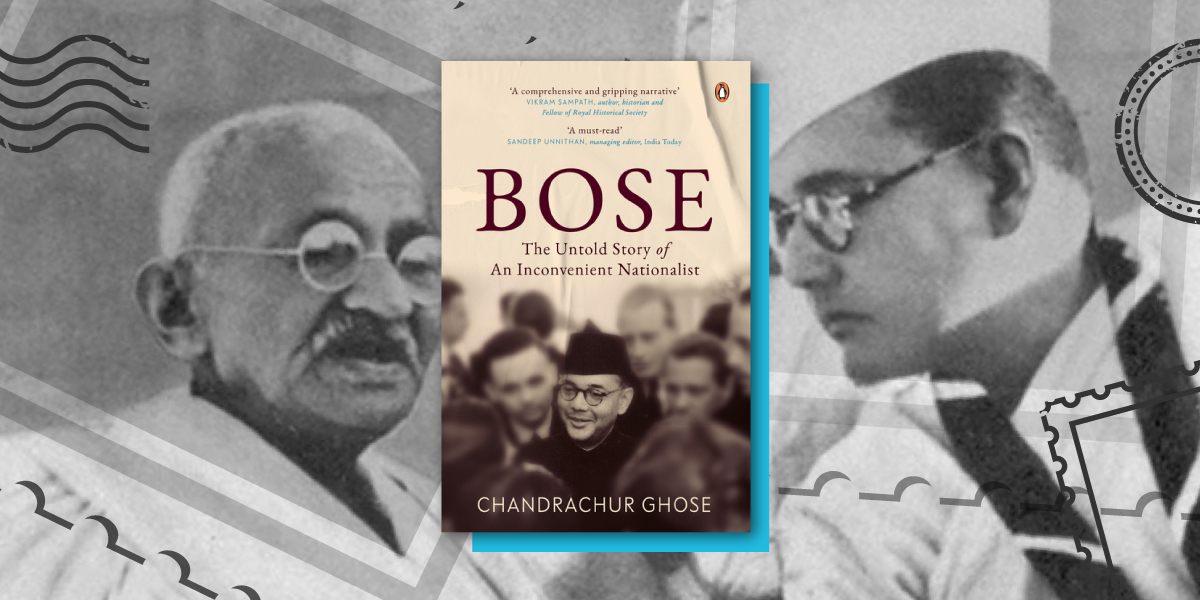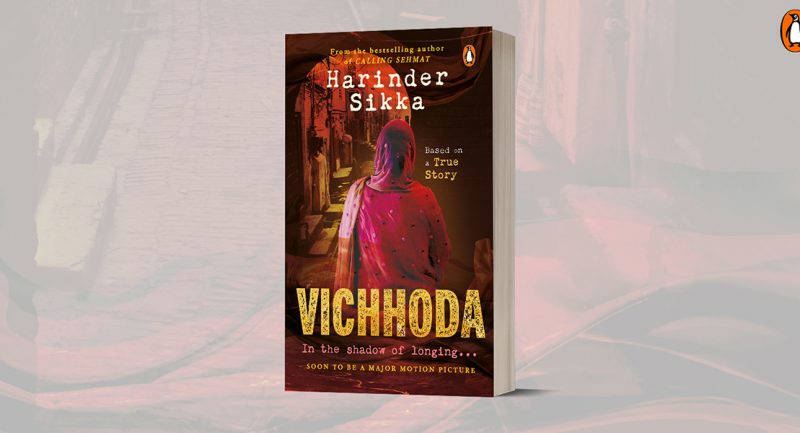
There are not many Indian heroes whose lives have been as dramatic and adventurous as that of Netaji Subhas Chandra Bose. Whether it was his resignation from the Indian Civil Service or evading the framed intelligence network to travel to Europe, controversies have always surrounded his life. And out of those controversies, a consistent one has always been his relationship with Mahatama Gandhi.
Here’s an excerpt from Chandrachur Ghose’s latest biography, BOSE, throwing light on the everlasting debate:
‘While the war of statements and counterstatements was raging on in the public domain, one man held his silence, only to speak after the dust seemed to have settled. But that was just the calm before the storm. The battle lines had been drawn. Whether Subhas realized it or not, his opponents were biding their time to come at him with the full force of satya and ahimsa, waiting for the signal.
There was never any doubt that Subhas had a great regard for Gandhi the man, and for the role he had played in transforming the character of India’s struggle for freedom. Politically and mentally, however, their differences were too big to be bridged. Subhas had started opposing Gandhi’s policies and strategies very publicly even when he was a greenhorn in the Congress, which reached the highest pitch in his 1933 joint statement with Vithalbhai Patel against Gandhi. With his larger-than-life stature, Gandhi could afford to (and he did) play down Subhas’s dissenting voice as long as he wished. The occasional periods of truce and bonhomie, with 1937 and 1938 being the best period, however, did not alter Gandhi’s fundamental attitude towards Subhas. He was still ‘not at all dependable’. And now he had thrown a direct challenge not only to Gandhi’s policies, but to his indisputable grip over Congress leadership.
Gandhi’s statement issued on 31 January was a mix of the grace and strictness of a mentor, but laced with biting sarcasm and a hint of a challenge. It set the tone for what Subhas was about to face very soon:
Shri Subhas Bose has achieved a decisive victory over his opponent, Dr. Pattabhi Sitaramayya. I must confess that from the very beginning I was decidedly against his re-election for reasons into which I need not go. I do not subscribe to his facts or the arguments in his manifestos. I think that his references to his colleagues were unjustified and unworthy. Nevertheless, I am glad of his victory. And since I was instrumental in inducing Dr. Pattabhi not to withdraw his name as a candidate when Maulana Saheb withdrew, the defeat is more mine than his. I am nothing if I do not represent definite principles and policy. Therefore, it is plain to me that the delegates do not approve of the principles and policy for which I stand.
… Subhas Babu, instead of being President on the sufferance of those whom he calls rightists, is now President elected in a contested election. This enables him to choose a homogeneous Cabinet and enforce his programme without let or hindrance.
… My writings in the Harijan have shown that the Congress is fast becoming a corrupt organization in the sense that its registers contain a very large number of bogus members. I have been suggesting for the past many months the overhauling of these registers. I have no doubt that many of the delegates who have been elected on the strength of these bogus voters would be unseated on scrutiny…
… After all Subhas Babu is not an enemy of his country. He has suffered for it. In his opinion his is the most forward and boldest policy and programme. The minority can only wish it all success. If they cannot keep pace with it, they must come out of the Congress. If they can, they will add strength to the majority.
The minority may not obstruct on any account. They must abstain when they cannot co-operate. I must remind all Congressmen that those who, being Congress-minded, remain outside it by design, represent it most. Those, therefore, who feel uncomfortable in being in the Congress may come out, not in a spirit of ill will, but with the deliberate purpose of rendering more effective service…
The popular Bengali monthly Masik Basmati asked caustically, ‘When Mahatma Gandhi is not even a four anna member of the Congress, why is he so perturbed by the victory of Subhas?”
How do you think Bose responded to all this?
To know more about the revolutionary that Bose was and how the camaraderie between him and Gandhi morphed over the years, get yourself a copy of Ghose’s BOSE.









